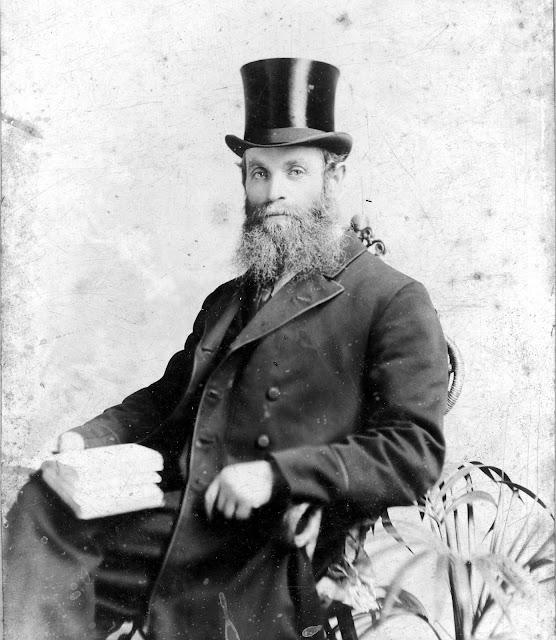Born: 1844 in Porosobe, Volkovysk district, Grodno Province, Russian Empire, nowadays Porazava in Belarus
- Simon Levin 1869 - ?
- Jacob Levin 1873 - 1917
- Rachel Levin 1873 - 1952
- Esther Reizel Levin 1877 - 1921
- Sarah Levin 1880 - 1953
- an infant who probably died before 1884
- Leah Lillian Levin 1888 - 1972
- Abraham Levin 1891 - 1954
Hebrew translation: A decent and upright man lies here, beloved. He walked in the circles of righteousness through all his days. He ran as swiftly as a deer to fulfill the will of his Creator. He was renowned for his good deeds. Our teacher Aharon, son of Avraham Moshe of blessed memory. He passed away with a good reputation on the first of the Intermediate Days of Sukkot, 17 Tishrei 5671. May his soul be bound up in the bonds of (eternal) life.
According to local tradition, Jews settled in Porozow in the
16th century; however, there are no written documents to support this. In 1847,
the census recorded 379 Jews, most of them living off agriculture from leased
lands. After the reforms of Czar Alexander II in 1862 they purchased the land
from the farmers and estate owners. They lived on four main streets and a few
alleys that branched off from them. Their numbers grew steadily and in 1897
they were enumerated as 931 souls -- 46% of the population -- and in addition
to farmers they were merchants, store owners, peddlers and a few craftsmen.
Most of the farmers' sons left the family properties that were inherited by only one son in order to prevent splitting the fields, and they took up occupations like trading and crafts. Jews and non-Jews in Porozow and its surroundings lived in harmony amongst themselves and with their neighbors, including the Belorussian farmers.
The Jews of Porozow had strong ties with the Jews of
Volkovysk. They traded amongst themselves and Porozow’s youth continued their
studies in Volkovysk. When needed, they shared rabbis with Volkovysk. Up to
World War I, we know of Rabbi Yitzhak Hever, his son Rabbi Yosev Hever, Rabbi
Baruch Avraham Mirski (1872), Rabbi Shlomo Ha Levi Feinzilber and Rabbi Aharon
David Kosofski (1906). The children in the community studied in a traditional
cheder. At the end of the 19th century, two Beitei Midrash -- houses of
religious study -- and one bath house were built.
In 1878, Porozow was a town of 300 households, consisting of 699 men and 755 women. Included in those numbers were 556 Jews. People of three faiths lived in the town; there were also Russian Orthodox and Catholics, and each group had its own house of worship. The gentiles in Porozow were involved mainly in pottery production; the Jews favoured trade.
With the outbreak of World War I, Jews were drafted into the Czar's army and families were left without providers. In the fall of 1915, Germany conquered Porozow and controlled it until the end of 1918. The Germans drafted many citizens for forced labor, e.g., for road and base construction and other hard work. The dispossessed suffered from hunger and want, since the local economy was paralyzed. All the town’s children, without regard to nationality or religion, were forced to study in the German school and in the German language. For the Jewish children, two hours per week were allotted for Hebrew and religious studies.
At the end of the war, the Jews returned and rebuilt their businesses. Initially, life in Porozow returned to normal. But very soon all realized that their economic status had worsened in comparison to what it had been before the war. Poland faced an economic crisis with the loss of important export markets in Russia after the border with the Soviet Union was closed.
After the war, most of the tax burden was placed on the independent business sector - i.e., the Jewish mercantile sector. At the same time, Jews were sidelined from the market at the hands of Polish cooperatives established with government support and given favorable financial conditions. Jewish craftsmen lost clients to these cooperatives and to craftsmen who appeared in the villages after the war, and those Jews who weren't conversant in Polish had difficulties and were disadvantaged when the government imposed many regulations on them. Due to the economic distress and dispossession, emigration overseas increased and the community dwindled in size.
Also, between both World Wars, as in previous years, Porozow
maintained its religious character and community life centered around the
synagogue and the Beitei Midrash, the religious study institutions. The
community rabbi in 1929 was Rabbi Eliezer Harkavy. The young generation, in
contrast to the adults, abandoned religion and embraced Zionism. In the mid
1920s, a Halutz branch was founded and young people left for communal training.
A few emigrated to Palestine.
The beginning of the end of the Jews of Porozow came with
the Nazi invasion of Belarus in 1941. Control of Porozow and the surrounding
area passed back and forth between the Russian and German armies, but
eventually the Germans prevailed. In 1942 a ghetto was created, and by November
of that year the entire Jewish population of the town was marched to Wolkowysk,
though a small group was shot in the forest. Between November 10 - December 15,
1942, most were transported by train to Treblinka, where they perished.






.jpg)
.jpg)






